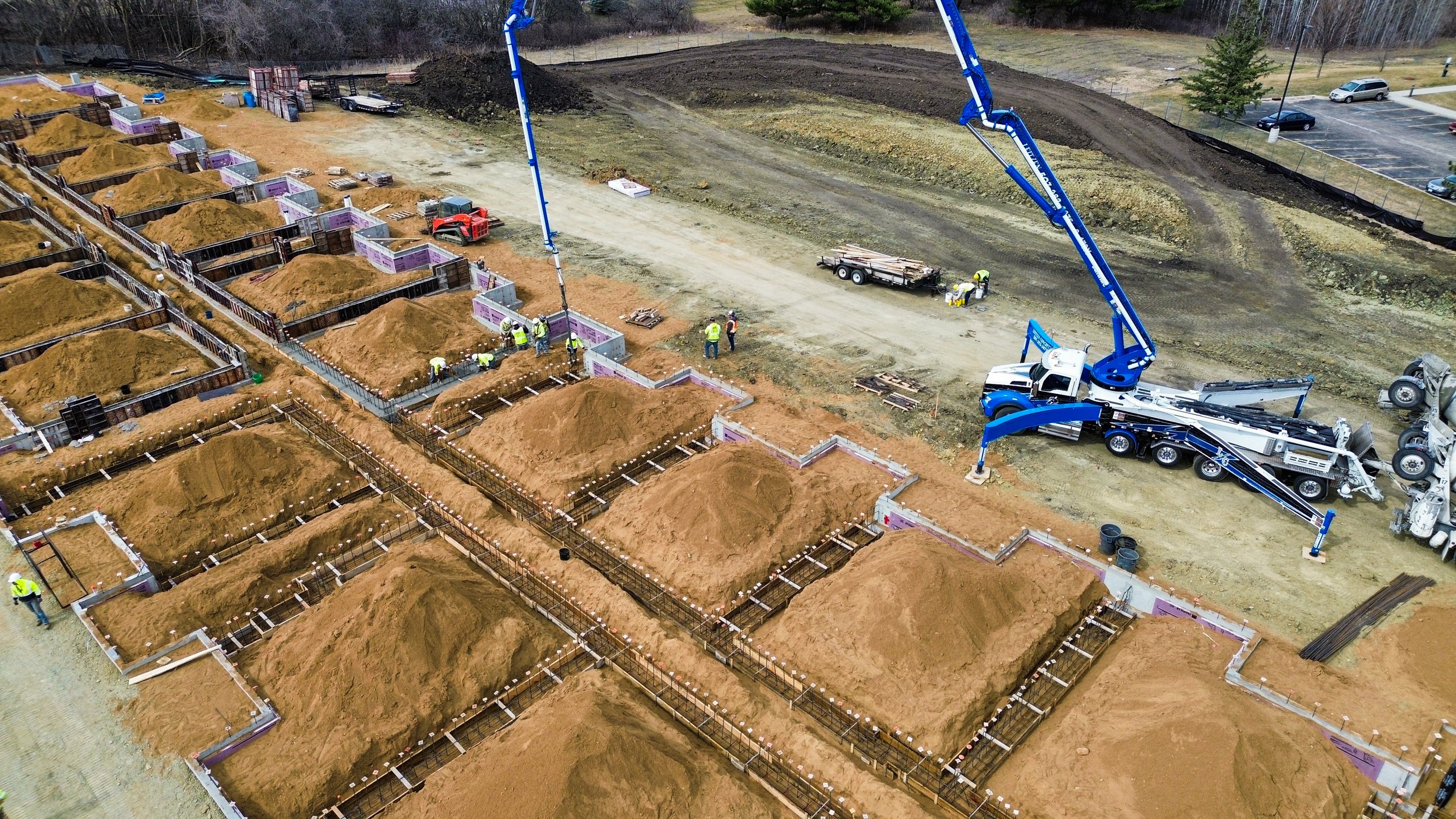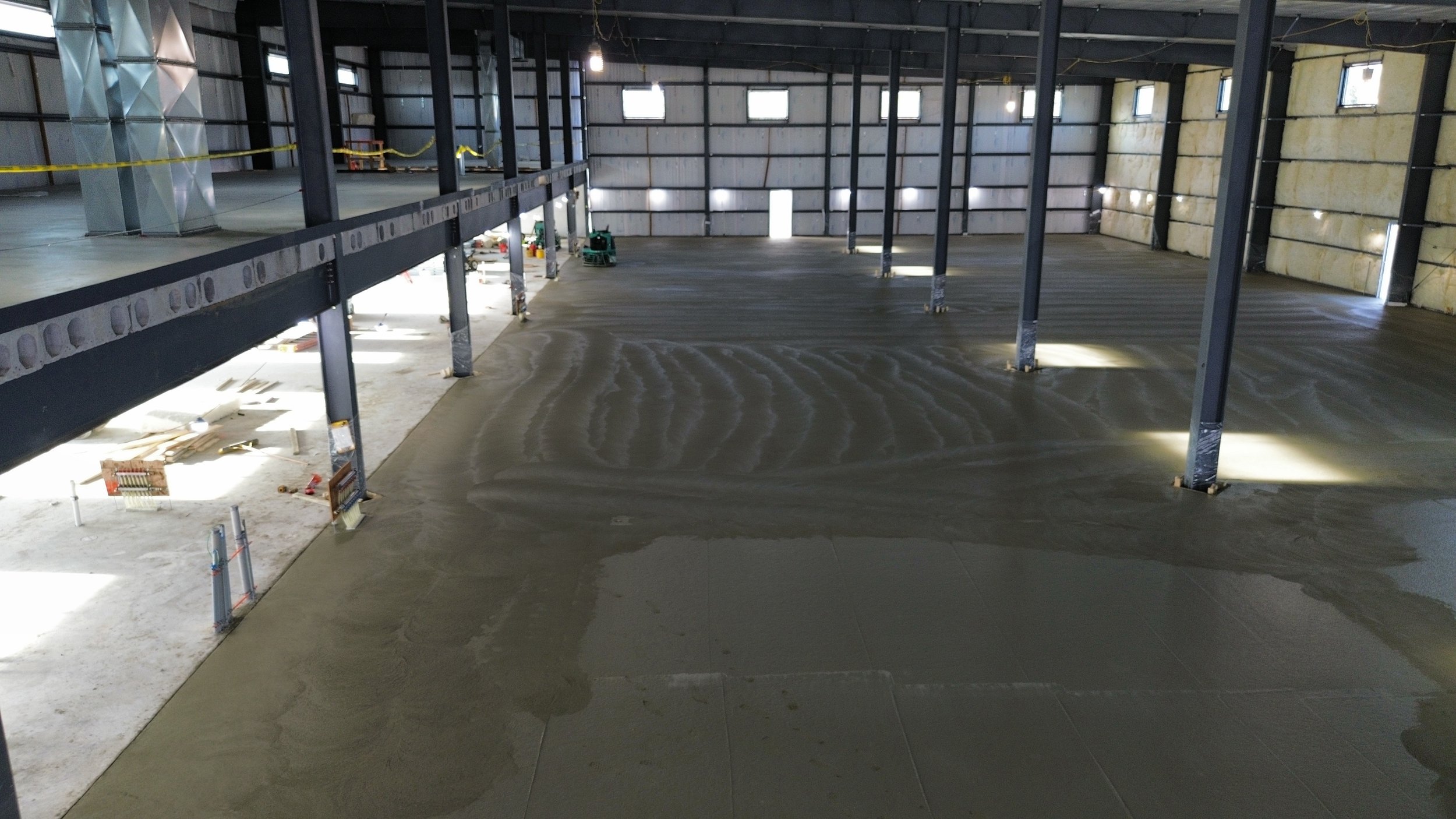
CONCRETE FOOTINGS
Comprehensive Guide
to Commercial
Concrete Footings
In any commercial construction project, the foundation is crucial. It provides the stability and support necessary to ensure the structural integrity and longevity of the building. Concrete footings play a crucial role in this process. This comprehensive guide will walk you through the different types of concrete footings commonly used in commercial construction, their applications, and the best times to use them.
What are Concrete Footings?
Concrete footings are structural elements that support the weight of a building and transfer the loads to the ground. They are usually made of reinforced concrete and are designed to distribute the weight of the structure over a larger area, reducing the risk of settlement or shifting. By providing a solid base, concrete footings ensure that the building remains stable and secure.
Types of Concrete Footings
-
Concrete footings come in various types, each suited for specific applications and load-bearing requirements.
-
Spread footings are characterized by their wider base, which helps distribute the load over a larger area. This type of footing is commonly used to support columns, piers, and walls, providing stability and preventing settlement.
-
Trench footings are long and narrow, designed to support continuous walls and retaining structures. They are particularly useful in projects where stability against lateral forces is essential.
-
Pad footings, also known as isolated footings, have a square or rectangular shape. They are designed to support individual structural elements such as columns or piers. Pad footings are versatile and can be used in a wide range of applications.
-
Strip footings, also called continuous footings, are long and continuous footings used to support load-bearing walls and foundation walls. They distribute the load evenly along the length of the wall, ensuring stability and preventing uneven settlement.
-
These footings are specifically designed to support cast-in-place foundation walls. They provide a stable base for the walls, ensuring they can withstand vertical and lateral loads.
-
CMU (Concrete Masonry Unit) wall assemblies require specific footings to provide adequate support. These footings are designed to distribute the load evenly and ensure the stability of the CMU walls.
-
Grade beam footings are used when there are expansive soil conditions or when deep excavation is not feasible. They transfer loads over a large area and help mitigate the effects of soil movement.
-
Mat slab footings, also known as raft footings, are large, flat foundations used to support heavy loads. They are commonly used in industrial and commercial structures that house heavy machinery or equipment.
-
Elevator pits require special footings to support the elevator structure. These footings provide stability and ensure the proper functioning of the elevator system.
-
Water stop assemblies are crucial for areas prone to water infiltration, such as basements, parking structures, and water containment areas. The footings for these assemblies prevent water from seeping into the building, protecting it from potential damage.
-
Pre-cast tilt-up panels require specific footings to ensure stability and proper support. These footings are designed to accommodate the weight and dimensions of the pre-cast panels, ensuring a secure installation.
-
Post-hole footings are used for vertical structures such as fences or signposts. They provide stability and prevent shifting or leaning of the structures.
Sign Footings
Sign footings are specifically designed to support signage structures. These footings ensure that the signs are securely anchored, even in areas with high wind loads or seismic activity. Properly designed and installed sign footings prevent the signs from toppling over, ensuring their visibility and longevity.
Choosing the Right Footing for Your
Commercial Project
Selecting the appropriate type of footing for your commercial project is crucial to ensure the structural stability and longevity of the building. Consider the following factors when determining the best footing option:
-
Evaluate the expected loads and weight distribution of the structure. Heavier loads may require deeper or wider footings to ensure adequate support.
-
Assess the soil conditions at the construction site. The soil's bearing capacity, water content, and potential for settlement or expansion will influence the footing design.
-
Take into account the local climate, including freeze-thaw cycles, seismic activity, and wind loads. These factors may impact the footing design and reinforcement requirements.
-
Familiarize yourself with the local building codes and regulations governing commercial construction. Compliance with these guidelines ensures the safety and legality of the project.
-
Properly designed and installed footings ensure the structural integrity of the building, reducing the risk of settlement, shifting, or structural failures.
-
Concrete footings provide a stable and secure foundation, improving the overall stability of the structure and minimizing the potential for damage.
-
High-quality concrete footings, coupled with professional installation techniques, contribute to the longevity of the building. They resist deterioration and withstand environmental stresses, extending the lifespan of the structure.
-
Professional contractors can tailor the footing design to meet specific project requirements, considering factors such as load distribution, soil conditions, and site constraints.
-
Hiring a professional ensures compliance with local building codes and regulations. Contractors have knowledge of the applicable guidelines and ensure that the footings meet the necessary standards.
-
Professional installation minimizes errors and delays, resulting in a more efficient construction process. Additionally, experienced contractors can optimize material usage, helping to control project costs.
Concrete footings are essential components of commercial construction projects, providing stability and support for the structure. Understanding the different types of footings and their applications can help you make informed decisions for your commercial project. By working with a professional commercial concrete contractor, such as Evenson Concrete Systems, you can ensure the proper design and installation of footings, contributing to the structural integrity and longevity of your building.
For reliable and expert commercial concrete footing services, contact Evenson Concrete Systems. Our team of experienced professionals will work closely with you to design and install the appropriate footings tailored to your project's specific needs.
Benefits of Professional Concrete Footing Installation
Professional concrete footing installation by experienced commercial concrete contractors offers numerous benefits, including:
